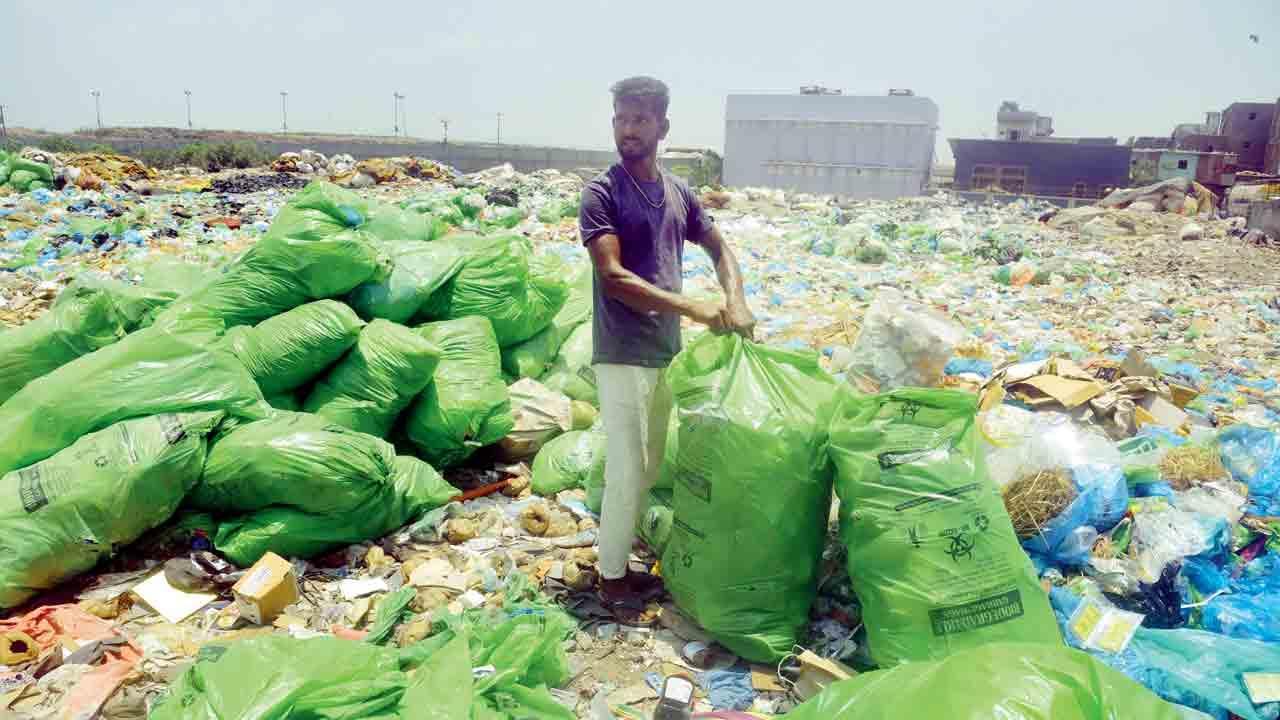Civic body waits for environmental clearance for the plant where ash left after generating energy will be landfilled in the dumping ground itself

A man segregates garbage at the Deonar dumping ground earlier this month. Pic/Atul Kamble
A year after allocating over Rs 1,000 crore for a waste-to-energy plant at Deonar, the project is yet to see the light of the day. Since the ash generated by burning the garbage will be buried at the dumping ground itself, the contractor has to acquire an environmental clearance. All technical processes will take at least four months before the project can start.
ADVERTISEMENT
The city generates about 6,500 to 7,000 metric tonnes of garbage daily, out of which around 1,000 metric tonnes is received by the Deonar dumping ground and the remaining is sent to Kanjurmarg. In April 2013, the high court had directed the BMC to close Deonar and Mulund dumping grounds as the corporation did not have plans to treat the waste. The last extension to continue the Deonar site was given till December 2019. Though the BMC tabled a proposal to award the contract for the plant for Rs 1,020 crore in February 2020, it took eight months for it to be sanctioned due to internal issues and the lockdown.
“Projects below 15 MW energy do not require environment clearance. But in this project, the ash left after generating energy will be landfilled in Deonar itself. This is why the contractor needs an EC. A public hearing over video call took place on April 27 and received 450 questions and 350 emails. The queries and doubts will be sorted out and we are hopeful of getting the permission soon,” said an officer from the Solid Waste Management department.
The plant will process around 600 metric tonnes of garbage daily and 4-MW energy will be generated. This would be equivalent to the amount of electricity used by 1,200-1,500 homes for an hour. t It will take 40 months to be fully operational once the process starts. The contractor will operate the facility for 15 years and the energy will be used for BMC’s services.
Meanwhile, the procedure of inviting global expressions of interest for another waste-to-energy plant to process 1,200-1,800 metric tonnes is also going slow.
The corporation has been trying to develop waste-to-energy plants for seven years. It decided to set up a plant at Deonar in 2014 to process 3,000 metric tonnes of waste daily, but no bidders came forward for such a large-scale plant. In 2018, the civic body changed its policy and went for smaller plants and received a response after the third tender in May 2019.
 Subscribe today by clicking the link and stay updated with the latest news!" Click here!
Subscribe today by clicking the link and stay updated with the latest news!" Click here!






